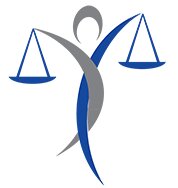Best Car Accident Lawyers in Trinidad and Tobago
Share your needs with us, get contacted by law firms.
Free. Takes 2 min.
Or refine your search by selecting a city:
List of the best lawyers in Trinidad and Tobago
About Car Accident Law in Trinidad and Tobago
Car accident law in Trinidad and Tobago primarily addresses the rights and responsibilities of drivers, passengers, and pedestrians involved in road traffic accidents. This body of law encompasses traffic regulations and insurance claims, aiming to provide compensation for injury, loss, and damage resulting from vehicular accidents. The legal process can involve negotiation with insurance companies, settlement discussions, and, in some cases, litigation. Understanding the intricacies of local law is crucial for determining liability and ensuring fair compensation.
Why You May Need a Lawyer
There are several instances where seeking legal advice following a car accident in Trinidad and Tobago is beneficial:
- Complex Insurance Claims: Navigating insurance claims can be daunting, particularly when faced with disputes over fault or coverage.
- Significant Injuries or Damages: Severe accidents often involve complicated legal and medical issues that require expert handling.
- Disputed Liability: When fault is contested, a lawyer can help gather evidence, negotiate settlements, or represent you in court.
- Legal Representation in Court: If a lawsuit is necessary, having an attorney is crucial for court proceedings and negotiations.
- Understanding Local Laws: A lawyer familiar with Trinidad and Tobago’s legal system can offer guidance on your rights and obligations.
Local Laws Overview
The legal framework surrounding car accidents in Trinidad and Tobago includes several key components:
- Road Traffic Act: This act sets out the rules of the road and penalties for violations, such as speeding and reckless driving.
- Motor Vehicles Insurance (Third-Party Risks) Act: This requires drivers to carry insurance for injury or damage caused to third parties.
- Liability and Damages: Determining liability is central to any car accident case, influencing the extent and type of compensation available.
- Negligence: The principle of negligence is often used to establish liability, meaning proving whether reasonable care was exercised.
Frequently Asked Questions
What should I do immediately after a car accident?
Immediately seek medical attention for any injuries, exchange details with other involved parties, document the scene with photos, and notify your insurance company.
Are there time limits for filing a claim?
Yes, generally, you have up to four years to file a personal injury claim from the date of the accident, but it's advisable to act promptly.
Who determines who is at fault in a car accident?
Fault is typically determined based on police reports, witness statements, and evidence from the accident scene. Insurance companies and potentially the courts will make the final determination.
Can I claim if I was partially at fault for the accident?
Yes, Trinidad and Tobago follows the system of contributory negligence, where compensation may still be available even if you are partially at fault, though it may be reduced.
What are my rights if I am not at fault?
If you're not at fault, you have the right to seek compensation for medical bills, property damage, loss of income, and pain and suffering.
What if the other driver doesn’t have insurance?
You may need to claim under your own insurance policy under the uninsured motorist coverage if available.
How much can I claim for injuries sustained in a car accident?
The amount varies based on the severity of injuries, medical expenses, and the impact on your quality of life and ability to work.
How long does it take to resolve a car accident claim?
The duration varies; simple claims might resolve in weeks, whereas more complex cases can take months or longer.
What evidence is essential for a car accident claim?
Essential evidence includes photographs of the scene, police reports, medical records, witness statements, and expert evaluations if necessary.
Do I need a lawyer to handle my car accident claim?
While not mandatory, having a lawyer can significantly increase the likelihood of a favorable outcome, especially in complex or disputed cases.
Additional Resources
Consider reaching out to these resources for further assistance:
- Trinidad and Tobago Police Service for accident reports and road safety information.
- Insurance Companies for claims-related inquiries and policy details.
- Legal Aid and Advisory Authority for resources and assistance on legal matters.
- Ministry of Works and Transport for details on road laws and regulations.
Next Steps
If you need legal assistance with a car accident, consider taking the following steps:
- Collect and organize all relevant documentation and evidence related to the accident.
- Research and contact a reputable lawyer specializing in car accident cases in Trinidad and Tobago.
- Schedule an initial consultation to discuss your case and explore potential legal strategies.
- Follow your lawyer's guidance, remaining proactive and responsive throughout the proceedings.
Taking prompt and informed action can help protect your rights and improve the chances of a successful outcome in your case.
Lawzana helps you find the best lawyers and law firms in Trinidad and Tobago through a curated and pre-screened list of qualified legal professionals. Our platform offers rankings and detailed profiles of attorneys and law firms, allowing you to compare based on practice areas, including Car Accident, experience, and client feedback.
Each profile includes a description of the firm's areas of practice, client reviews, team members and partners, year of establishment, spoken languages, office locations, contact information, social media presence, and any published articles or resources. Most firms on our platform speak English and are experienced in both local and international legal matters.
Get a quote from top-rated law firms in Trinidad and Tobago — quickly, securely, and without unnecessary hassle.
Disclaimer:
The information provided on this page is for general informational purposes only and does not constitute legal advice. While we strive to ensure the accuracy and relevance of the content, legal information may change over time, and interpretations of the law can vary. You should always consult with a qualified legal professional for advice specific to your situation.
We disclaim all liability for actions taken or not taken based on the content of this page. If you believe any information is incorrect or outdated, please contact us, and we will review and update it where appropriate.
Browse car accident law firms by city in Trinidad and Tobago
Refine your search by selecting a city.














